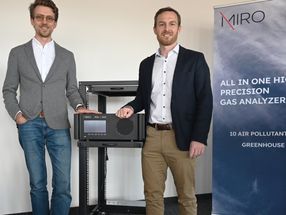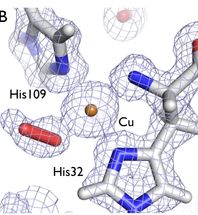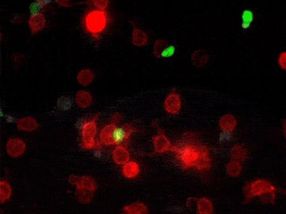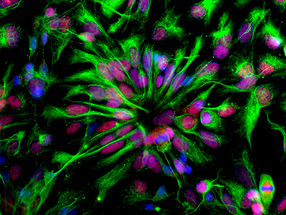New Study Demonstrates That Prostate-Specific Membrane Antigen (PSMA) Expression Predicts Prostate Cancer Recurrence
Cytogen Corporation announced the presentation of clinical data demonstrating that a high level of prostate-specific membrane antigen (PSMA) in prostate tissue is a strong predictor of prostate cancer recurrence. In the study, independent investigators from Ulm, Germany, and Boston, MA, analyzed PSMA Expression by tissue microarray in 96 patients with either localized or metastatic prostate cancer who had undergone radical prostatectomy, or surgical removal of the prostate, as monotherapy. One third of the patients had disease confined to the prostate gland with no spread to lymph nodes (LN), 33% had only one positive LN, and the remaining third had more than one positive LN. Following therapy, patients were monitored for a maximum of 12.6 years with an average follow-up of 2.7 years.
Significant up-regulation of PSMA expression was noted in patients with metastatic disease as compared to those with localized prostate cancer and in localized disease compared to benign prostate tissue (p<0.05). High PSMA levels were associated with a significant increase in disease recurrence following therapy (p<0.001) in univariate statistical analyses. Other significant parameters for predicting disease recurrence included LN positivity, extraprostatic extension of disease, seminal vesicle invasion by disease, and Gleason score 8-10. Using multivariate statistical analyses, the best model to predict disease recurrence included high PSMA expression (p<0.01) and extraprostatic extension (p=0.02) after adjusting for Gleason score and seminal vesicle invasion.
"We are very encouraged by the findings of this new study, which validate and extend upon data previously published demonstrating that over-expression of PSMA in primary prostate cancer not only correlates with other adverse traditional prognostic factors, but can independently predict both a higher incidence and shorter time to disease recurrence," said Michael D. Becker, president and chief executive officer of Cytogen. "There is a tremendous need for better prognostic markers in prostate cancer to assist in the identification of patients with aggressive forms of the disease who can potentially benefit from earlier and more intensive forms of treatment."
Most read news
Organizations
Other news from the department research and development

Get the analytics and lab tech industry in your inbox
By submitting this form you agree that LUMITOS AG will send you the newsletter(s) selected above by email. Your data will not be passed on to third parties. Your data will be stored and processed in accordance with our data protection regulations. LUMITOS may contact you by email for the purpose of advertising or market and opinion surveys. You can revoke your consent at any time without giving reasons to LUMITOS AG, Ernst-Augustin-Str. 2, 12489 Berlin, Germany or by e-mail at revoke@lumitos.com with effect for the future. In addition, each email contains a link to unsubscribe from the corresponding newsletter.


























































